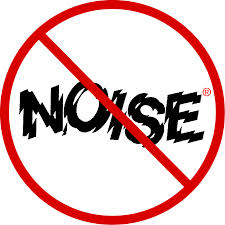Stress of exposure adds to risks, says WHO report. Light traffic is enough for chronic levels at night
 Thousands of people in Britain and around the world are dying prematurely from heart disease triggered by long-term exposure to excessive noise, according to research by the World Health Organisation. Coronary heart disease caused 101,000 deaths in the UK in 2006, and the study suggests that 3,030 of these are caused by chronic noise exposure, including to daytime traffic.
Thousands of people in Britain and around the world are dying prematurely from heart disease triggered by long-term exposure to excessive noise, according to research by the World Health Organisation. Coronary heart disease caused 101,000 deaths in the UK in 2006, and the study suggests that 3,030 of these are caused by chronic noise exposure, including to daytime traffic.
Deepak Prasher, professor of audiology at University College London, told the New Scientist magazine: “The new data provide the link showing there are earlier deaths because of noise. Until now, noise has been the Cinderella form of pollution and people haven’t been aware that it has an impact on their health.”
The WHO’s working group on the Noise Environmental Burden on Disease began work on the health effects of noise in Europe in 2003. In addition to the heart disease link, it found that 2% of Europeans suffer severely disturbed sleep because of noise pollution and 15% can suffer severe annoyance. Chronic exposure to loud traffic noise causes 3% of tinnitus cases, in which people constantly hear a noise in their ears.
Research published in recent years has shown that noise can increase the levels of stress hormones such as cortisol, adrenaline and noradrenalin in the body, even during sleep. The longer these hormones stay in circulation around the bloodstream, the more likely they are to cause life-threatening physiological problems. High stress levels can lead to heart failure, strokes, high blood pressure and immune problems.
“All this is happening imperceptibly,” said Prof Prasher. “Even when you think you are used to the noise, these physiological changes are still happening.”
The WHO came to its figures by comparing households with abnormally high exposure to noise with those in quieter homes. It also studied people with problems such as coronary heart disease and tried to work out if high noise levels had been a factor in developing the condition. This data was then combined with maps showing the noisiest European cities.
According to the WHO guidelines, the noise threshold for cardiovascular problems is chronic night-time exposure of 50 decibels (dB) or above – the noise of light traffic. For sleep disturbance, the threshold is 42dB, for general annoyance it is 35dB, the sound of a whisper.
Ellen Mason, a cardiac nurse at the British Heart Foundation, said: “Our world is undoubtedly getting busier and noisier. Some people find noise pollution more stressful to live with than others do. Noise cannot directly kill us, but it may add to our stress. Occasionally, stressful events can trigger a heart attack in someone with underlying heart disease. We know that stressed people are more likely to eat unhealthily, exercise less and smoke more, and these can increase the risk of developing heart disease in the first place.”
Mary Stevens, policy officer at the National Society for Clean Air, said of the study’s results: “We welcome this because one of the problems with noise is that it’s one of the areas that local authorities get most complaints about and it’s a big draw on their resources. But, unlike air quality, it hasn’t been taken that seriously policy-wise because there [wasn’t] the link between noise and health.”
Ms Stevens said that there were many options for reducing noise. Traffic could be quietened if more cars used low-noise tyres and councils installed low-noise road surfaces, for example. And coordinating roadworks by utility companies would also prevent the proliferation of potholes, another source of noisy traffic.
The EU has already issued a directive that obligates European cities with populations greater than 250,000 to produce digitised noise maps showing where traffic noise and volume is greatest. “[The research] all supports work going on at the moment to manage traffic noise, which is driven by the environmental noise directive,” said Ms Stevens.





